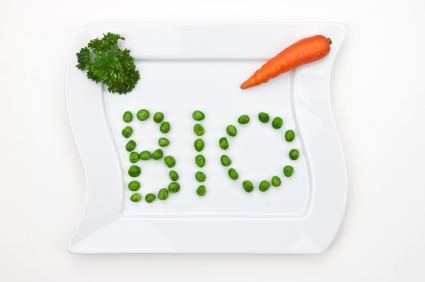Eating organic: What’s in it for you?
mis à jour le 12 June 2014 à 23:43The desire to eat better is apparent in the rapidly growing demand for organic food across the world. But what impact does it actually have on health? We ask the experts!
Does organic food really provide higher nutritional quality?
Because of the lack of comprehensive comparative studies, it is difficult to speak of real health benefits. But, according to the study Quality low input food, conducted at European level from 2004 to 2009 by more than thirty universities and research organizations, organic fruits and vegetables contain more antioxidants (about 40%) and organic milk more fatty acids (about 60%) than conventional foods.
For nutritionists, including those more sceptical about the nutritional superiority of organic food, the important thing is, well, to eat fruits and vegetables.
"Not to consume fruits and vegetables just “because that they are not organic” would be a big mistake!" highlights Dr. Bertrand Guérineau.
Is organic farming better for the planet?
Without a doubt! Food labels certified organic guarantee crops without synthetic chemicals (herbicides fertilizers, pesticides ...) and are therefore less polluting and less problematic to the ground.
Organic farms focus on production of crops of rustic varieties, preservation of hedgerows to maintain the habitat of insect species and their natural predators. In the tropics, for the cultivation of tea, for example, manual weeding and fertilizing with manure “terraced” gardens, planted under palm or coconut trees, promote biodiversity.
Moreover, the animals are fed organic feed, free of other animal produce, growth hormones, genetically modifying chemicals and antibiotics (except for the purpose of bacterial treatment).
This type of crop, livestock and fishing is more respectful of seasons and resources. Eating organic also reduces our carbon footprint, simply by avoiding those winter cherries that have to be flown in by plane from Chile!
Are we really sure that there are no pesticides in organic food?
Apart from cases of accidental pollution, organic food, which prohibits fungicides, insecticides and sprout inhibitors, are considered some of the most healthy labels. Owing to the lack of studies on the "cocktail effect" caused by hundreds of molecules used in pesticides, it is hard to assess the link between a product and a disease, admits the Pesticide Residue Observatory.
Nevertheless, they are suspected to be the cause of neurological, endocrine disorders and cancers, especially prevalent amongst farmers. The 2018 Ecophyto plan aims to reduce pesticides by 50% within ten years. Between 2010 and 2011, the Future Generations Association compared the levels of pesticide residues in four different menus, and a taste test amongst non-organic dishes and their organic equivalents.
The result? Zero residue in the organic fruits and vegetables, and thirty-seven in the conventional. According to the Directorate General for Competition, Consumption and Fraud, 50% of fruit and cereals and over 40% of vegetables contain 7% more residue than maximum levels considered safe. Amongst the treated fruits were grapes, pears and apples (twenty-seven treatments on average).
Nutritionist Catherine Serfaty-Lacrosnière advises to eat organic fruits with their skin, as it contains 50% of the antioxidants (vitamin C, E, polyphenols...).
Are organic products also guaranteed free of genetic modification?
AB-grade organic labels mean that the product contains at least 95% of organic ingredients. The legislation therefore tolerates a threshold for the adventitious presence of up to 0.9% GMOs. For the more picky consumers, some distributors proudly display their zero GMO, but these may not be organic.
GMO crops, whose effects on the body (toxicity, allergy...) are not well known, also pose an environmental and ethical debate – the patenting and commercialization of disposable seed by multinationals such as Monsanto, which are highly controversial methods.
Does organic food allow us to eat more balanced?
Not necessarily! “Consuming excess of organic salt, on organic meats or cooked in organic sunflower oil may well cause…organic cancer?" says nutritionist Bertrand Guérineau. But eating organic remains a global approach, which in principle, promotes a better balance on the plate – less meat, more fruits and vegetables (about 400 grams per day) rich in antioxidants, more grains and beans rich in protein and fibre, and much less refined or processed products.
This is the case for organic virgin olive oil, always cold pressed, four times richer in polyphenols than refined oil, says nutritionist Françoise De Keuleneer. Bonus – it is organic, and also often has more flavour.
How to navigate the jungle of organic food labels?
The important thing to remember is that neither is all organic food is vegan, nor is all vegan food organic. There is a large range of labels, which will normally include stands like “non-GMO”, “organic farming” and “pesticide-free”. For organic food certified in Europe, you will find the Eurofeuille, mandatory on all labels in all EU states. For food packaged or certified in the USA, look out for the “USDA Organic” label.




